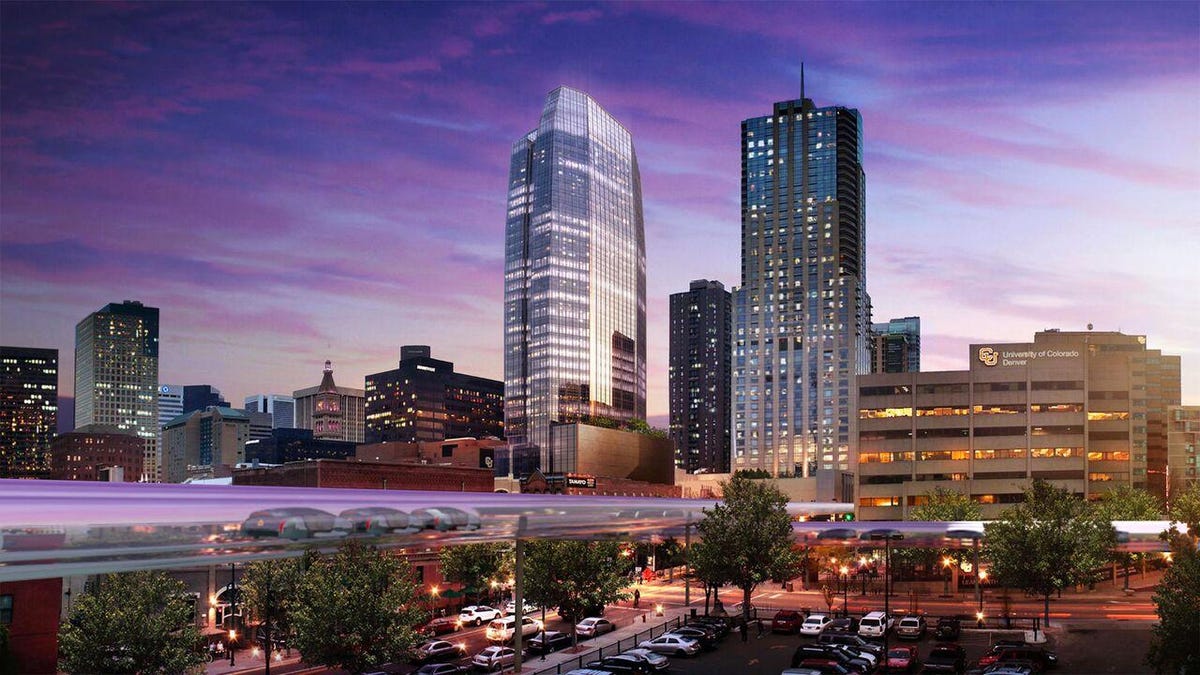'Hyperloop-inspired' transportation heads to Denver
New system spearheaded by former Hyperloop CTO will use magnetic levitation to whisk cars around the city.

An artist's rendering of Arrivo tubes in Denver.
It may not be Hyperloop, but Denver residents may one day find themselves shuttled around Denver in tubes at speeds of up to 200 mph.
That is the promise of a partnership announced Tuesday between Arrivo, a Los Angeles-based transportation startup led by a former executive and co-founder of Hyperloop One, and the Colorado Department of Transportation. The partnership aims to create a series of enclosed superhighways that use magnetic levitation and electric power to whisk floating vehicles around the heart of the congested city.
Arrivo, Italian for "arrival," was co-founded earlier this year by Brogan BamBrogan, once the chief technology officer at Hyperloop One. BamBrogan resigned from Hyperloop in July 2016 and filed a lawsuit accusing company executives of defamation, breach of fiduciary duty and assault, in which a noose was placed around his chair.
The lawsuit was settled in November 2016 for an undisclosed amount, and now BamBrogan is focused on building a $15 million test center and test track in the Denver Metro area.
"Passengers and cargo arrive quickly and efficiently at extremely low cost," BamBrogan said in a statement that likened the system to the one being built by his former company. "Arrivo will end traffic and futureproof regional mobility."
But unlike Hyperloop, which promises to move passengers and cargo over long distances through vacuum-sealed tubes at speeds up to 700 mph, Arrivo will move people much shorter distances at a fraction of the speed. Still passengers can expect to get around Denver much quicker than possible today, making what is normally an hour-long rush hour trip between Denver and Boulder in just 8 minutes.
"We are reaching max roads in many cases in Colorado," Shailen Bhatt, executive director of the Colorado Department of Transportation, said in a statement. "Arrivo has a unique and practical approach to implementing hyperloop technology to eliminate traffic and dramatically improve the way people and goods move around the city."
Arrivo expects the test track to be completed by 2021.
Special Reports: All of CNET's most in-depth features in one easy spot.
It's Complicated: This is dating in the age of apps. Having fun yet? These stories get to the heart of the matter.

